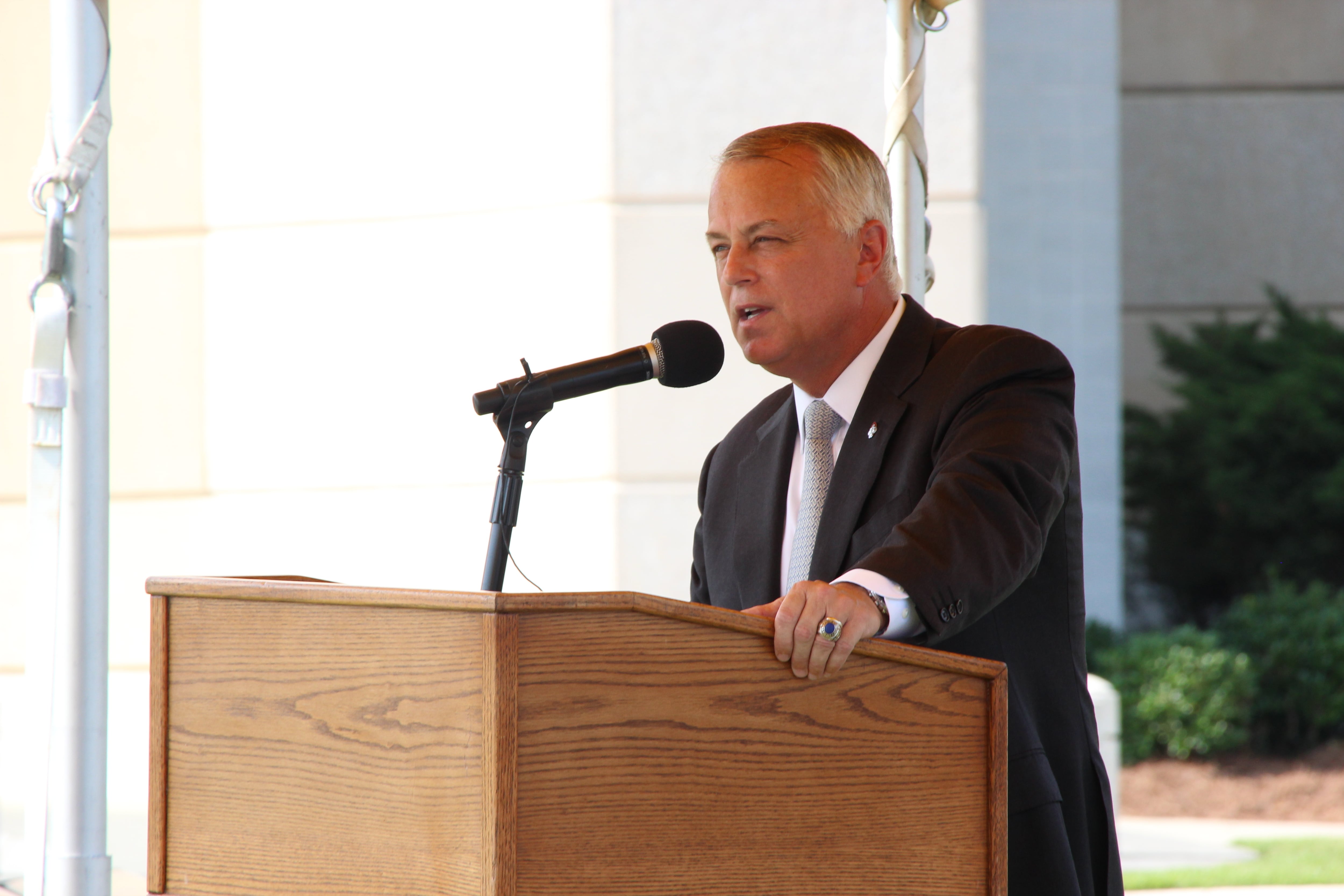WASHINGTON — White House budget Director Mick Mulvaney defended President Trump’s abandonment of his campaign pledge to erase the national debt as necessary to secure military funding.
“It’s not hypocritical,” said Mulvaney, who served in Congress as a deficit hawk.
“I think the president takes deficits very clearly, but he also recognizes we live in a world where in order to get the funding that we needed for the Defense Department— that we considered critical, and a priority of ours, we had to agree to higher non-defense discretionary levels than we would have liked,” Mulvaney said.
The deal to ease budget caps signed by Trump last week lets Congress boost spending for both defense and non-defense programs by $300 billion over the next two years while suspending the debt ceiling for one year.
Critics have called unrealistic the new fiscal 2019 budget’s projections of $3 trillion in deficit reduction through 3 percent annual growth projections and $1.7 trillion in mandatory savings, bringing the U.S. to within 1 percent of GDP by 2028.
Click here for more on President Trump’s FY19 budget!
As a member of Congress, Mulvaney criticized the Obama administration over deficit spending and pushed back on lawmaker efforts to prioritize military spending over deficit reductions.
Before the Senate Budget Committee on Tuesday, he said if he were still a member of Congress, he “probably” would vote against a deficit-financed budget plan he and Trump are proposing. OMB has since clarified, saying he would have voted against a two-year budget deal reached last week
On Wednesday, Mulvaney defended the budget proposal as adhering to that deal in a tense exchange with Massachusetts Rep. Seth Moulton, the top Democrat on the House Armed Services Committee’s sub panel on oversight.
RELATED

Moulton highlighted candidate Trump’s statement — made in a 2016 Washington Post interview — that he would wipe out America’s debt in eight years.
“So, is it safe to say that the president no longer intends to end deficits — end the national debt after eight years, which is what he said?” Moulton said.
“I don’t think it’s possible to, at this point, given what has happened in the last 12 months, especially to pay off the debt in eight years,” Mulvaney replied.
When Moulton questioned whether this was hypocrisy, Mulvaney pushed back.
“This recognizes the reality in Washington, D.C., right now, which is — with all due respect — your party insists on a dollar-for-dollar ransom for military spending, and we can’t change that, especially with the 60-vote rule in the Senate,” he said.
“Your ransom is my investment, and as a veteran of the military,” Moulton shot back. “I think there is nothing we can do to further our chances of defeating great-world adversaries like Russia and China than to invest in things like education.”
The House Budget Committee’s chairman, Rep. Steve Womack, R-Ark., earlier in the hearing welcomed the president’s fiscal 2019 budget as addressing national security, the opioid crisis and border security.
“Without question, there are plenty of worthwhile ideas included in the president’s budget this year,” Womack said. “First, I am encouraged that the administration prioritizes and boosts the investment in our national defense. With mounting threats to our security, both at home and abroad, it is critical that we provide for a strong and capable military.”
Joe Gould was the senior Pentagon reporter for Defense News, covering the intersection of national security policy, politics and the defense industry. He had previously served as Congress reporter.










